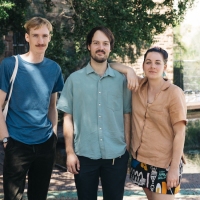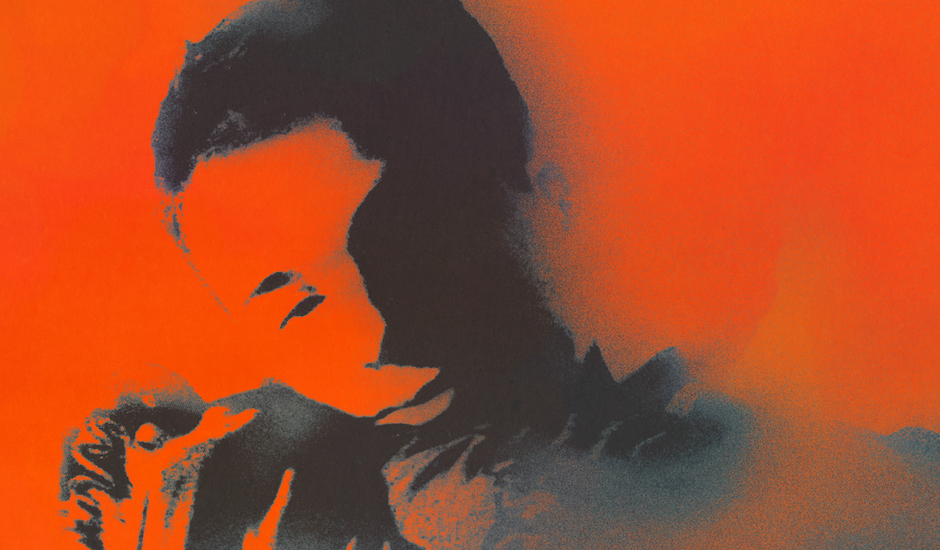 Pilerats x WAMFest present... #GetToKnow: Ghost CareIntroducing Ghost Care: A loveable Perth trio known for their fun alt-indie-pop and their energetic live show.
Pilerats x WAMFest present... #GetToKnow: Ghost CareIntroducing Ghost Care: A loveable Perth trio known for their fun alt-indie-pop and their energetic live show.

Verzache, on making music from the moshpit of life
On his exciting and genre-defying debut album My Head Is A Moshpit, the Canadian one-to-watch makes a grand entrance.
Over the last 12 months particularly, there’s been a lot of discussion about how the internet is changing the music space. There’s TikTok’s obvious impact on creating hits out of unsuspecting songs - look at almost every #1 charting single of the last year - right through to its impacts on song length and key; all the technical jargon that changes with the rapid fight for attention musicians have to face to grab your eyes and ears from your feed.
The most exciting thing, however, is something not being talked about enough: the next generation of young, boundary-breaking musicians that aren’t so much adapting to the future of music as they are defining it.
23-year-old Toronto musician Zach Farache - who makes music under the name Verzache - is someone quickly becoming synonymous with this genre-blurring, forward-thinking next generation of musicians. His earliest work was released under his real name, and existed within the kind of semi-acoustic, semi-electronic sound that would go viral on Soundcloud and Tumblr; one of those tracks - Naive Unprepared Child - doing that following its release in 2016.
The work that followed built upon that introduction, better-incorporating facets of what he actually listened to, and the wide-ranging versatility reflected amongst that. Some of the time, his work would veer into a more R&B-meets-rap atmosphere, where clanging productions would meet guest collaborators across the wide-ranging genre umbrella. Other times, his sound would sit in a Mac DeMarco-esque indie world, stripped back to its most bare-boned and personal. The most exciting thing was that you couldn’t really tell what sound was coming next - something which has become somewhat of a musical ethos to Verzache that strives in his debut album My Head Is A Moshpit, arriving earlier in March.
Verzache’s journey through musicianship began like that of many others. He started with the stereotypical piano lessons - “I didn’t think it was very cool,” he reflects - before ditching it for instruments “that the ‘cool kids’ play,” like guitar and drums. He remembers having particular affixation for the guitar, recounting a time where he would listen to John Mayer songs over and over again in an attempt to teach himself how to play them: “I would play the same bit for hours, trying to figure it out and trying to get it down as good as him,” he laughs. “I already had the passion for it back then.”
Eventually, he got caught up in the wind of Soundcloud, which at the time, was the defining place for dance music’s next generation, and the experimentalism that kept the genre moving forward. Inspired by this, he started producing - sort-of. “I would literally just put a beat together with an a capella and be like ‘Yoooo! This is sick!’, even if I didn’t really do anything to it,” he laughs. It was a trial and error approach, one where Farache would spend hours on end tinkering away with different sounds and textures, until he found something that stuck; something that sounded ‘fresh’ regardless of what genre or sub-genre it might’ve been.
Growing up, he notes that the Farache household wasn’t exactly a musical one, let alone whose CD players would veer away from chart-toppers like Michael Jackson bar for the occasional funk musician here and there - “there was a lot of Boney M,” he remembers. Nevertheless, it was a space he carved out for himself, taking notes from TV scores through to Tyler The Creator and The Beatles - nothing was off-limits, much like how no sound is off-limits when it comes to music of his own.
“People listen to a lot of stuff now; they aren’t very one dimensional with their music tastes like they might’ve been or might’ve led people to believe they were in the past,” he reflects, after talking about his versatile and constantly-changing music taste for much of the last few minutes. “People are no longer like ‘yeah I just listen to rock music because that’s me’. Like, no-one does that anymore! There’s a little bit of inspiration from that in my own music too.”
View this post on Instagram
Spanning a near-hour, My Head Is A Moshpit is a messy recollection of everything that makes Verzache and his ‘sound’ what it is - and that’s the whole point. Its title is a nod to the many themes and sounds that occupy the album’s 19 tracks, which twist and turn which such versatility that it could almost give you whiplash if it wasn’t for Farache’s precise and measured transitions. It’s a journey through the strange Venn diagrams that make up his music taste and how he distils that into his own work, as well as the experiences and reflections that use this soundscape as a backing track, with Farache’s own vocal being the navigator. It’s one of the most personal records you might hear this year, even if its many sounds aren’t exactly synonymous with the expected ‘intimacy’ of personal music.
On the pre-album highlight All I Need, for example, a backdrop of strumming guitar and clapping percussion soundtracks his escapism from introvertness, and the pressure to put himself out there: “I know you’ve heard it before, but anxiety has prevented me from being myself and ruined opportunities for me,” he recollects. It sits side-by-side to the swelling alt-psychedelica of Tongue Tied and the album-opening Forgot, which is drenched with hazy hip-hop percussion. Messed Up brings another example of My Head Is A Moshpit’s personality, decoding a relationship’s journey amongst a bedroom-pop blend of indie, electronica and pop.
If Farache's head is a clusterfuck of ideas and meanings - his words, not ours - then My Head Is A Moshpit is him attempting to navigate you through it, tearing down the walls as he goes. “I wanted to make it very personal, but I wanted it to slap,” he laughs. “It’s cool if I create something relatable, but the point is that it’s honest and that it’s me; all my contradictions, all my stories, all my whatevers just hanging out together.”
The album was a bit of a headache to make, he admits, especially when it came down to cutting down My Head Is A Moshpit’s demos to its final tracklisting. In saying that, however, it’s also the album’s greatest achievement. Each song on My Head Is A Moshpit flows seamlessly into the next, even if the sounds and themes between the songs can be vastly different - take how the collected Think About It blends into the aggressive FMU, for example, with the help of a 30-second interlude titled Coping Mechanisms.
“It wasn’t a natural thing,” he explains, talking about the album’s flow. A combination of “too many demos” and inexperience made deciphering the album a difficult task - “I was trying to make a project without knowing what I was doing, really” - but a lack of cohesiveness was something he found irritating in albums, and he was determined to make sure his album wouldn’t have that same jagged journey. “A lot of the songs felt like they went together very nicely - they were the natural ones - but for a lot of them, I had to add stuff to the beginning and end to join them, or create interludes to make sure it was cohesive. I’m very happy with how it’s turned out though.”
My Head Is A Moshpit is a vulnerable album, but for Verzache, it’s something that comes pretty naturally. On his infamous Twitter account, for example, promo and memes alternate amongst messages and learnings regarding mental health and self-care. On the day his album came out, he talked about being “scared [as fuck] to release” it, noting that he still has a “tough time listening to” the album even months following its finishing.
Since releasing the album, however, his messages online have been lit up by people reaching out with support, or sharing their own experiences with the themes embedded within the album’s lyricism. “The day of the release I was so anxious and nervous, but I’ve gotten such a good response [since the album came out],” he says. “A lot of this record I made for me, so to hear that someone else is taking stuff from it is the icing of the cake for me.” It’s the positive side of his social media experience; the influx of positive comments that flood all of his posts making it easier to laugh off the naturally-occurring negative messages. “You gotta be like ‘oh, this is probably just as 12-year-old in his basement,’ you know?”
And for Verzache himself, My Head Is A Moshpit has come with learnings of its own - one that he’s already beginning to apply into what’s next both musically and personally. “I noticed from what I was sharing, that there was a lot of self-awareness being brought from it,” he reflects. “I’m aware of my self-awareness, but I’m not always paying full attention until I’m hearing it out loud, so a lot of the problems on the record weren’t addressed until I heard myself saying it out loud.
“[Creating My Head Is A Moshpit] was a great learning opportunity because now I understand more about myself. I can use that going forward with my life, with full confidence and clarity.”
Verzache's debut album My Head Is A Moshpit is out now via Caroline Australia.
 Pilerats x WAMFest present... #GetToKnow: Ghost CareIntroducing Ghost Care: A loveable Perth trio known for their fun alt-indie-pop and their energetic live show.
Pilerats x WAMFest present... #GetToKnow: Ghost CareIntroducing Ghost Care: A loveable Perth trio known for their fun alt-indie-pop and their energetic live show.
 Blu DeTiger & Mallrat: The meeting of pop’s exciting new frontierThey may live on other sides of the planet, but Blu DeTiger and Mallrat now come together to interview one another, and talk new material.
Blu DeTiger & Mallrat: The meeting of pop’s exciting new frontierThey may live on other sides of the planet, but Blu DeTiger and Mallrat now come together to interview one another, and talk new material.